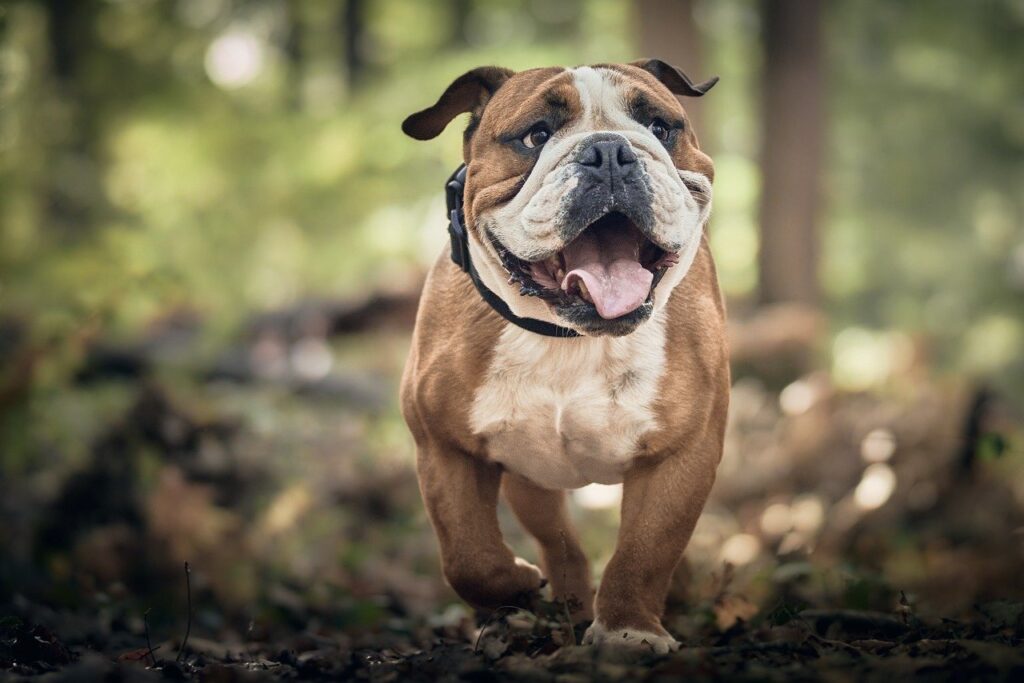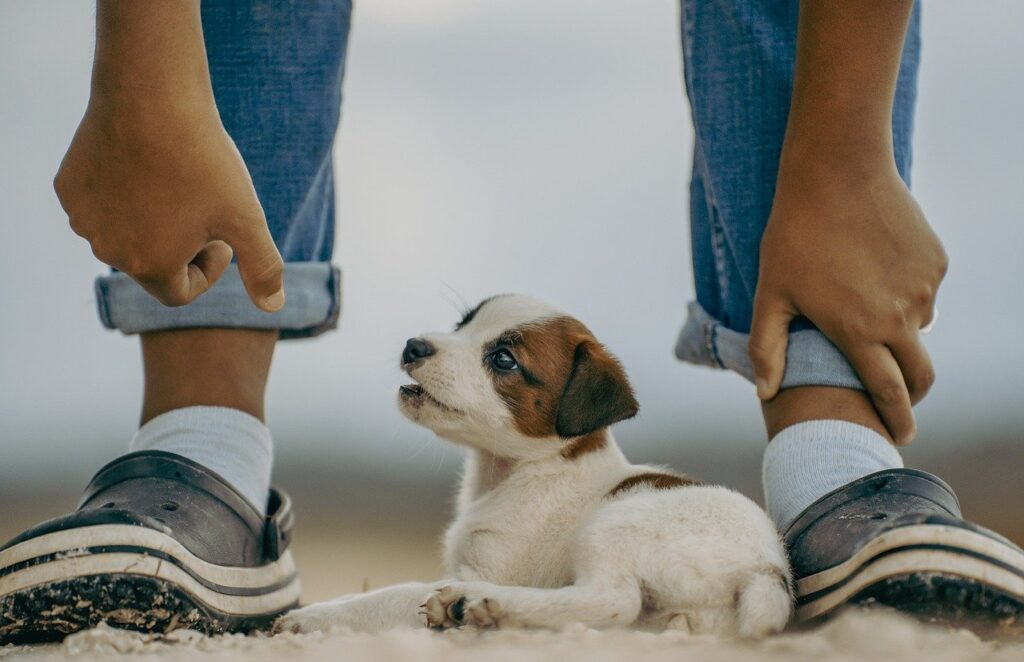Predicting whether a puppy will grow into a calm dog can be challenging, but there are several signs and factors to consider…
Temperament at Play
- Energy Level – Observe the puppy’s behavior during playtime with littermates. A puppy that is less boisterous and prefers to observe or engage in gentle play may be more inclined to be calm.
- Self-Soothing – Puppies that can settle down and rest during playtime instead of being overly stimulated may indicate a more laid-back personality.
Interactions with People
- Approachability – A calm puppy may approach people gently rather than jumping or barking excitedly. They might enjoy affection without becoming overly hyper.
- Sensitivity to Handling – Puppies that enjoy being held and petted without excessive wiggling may have a more relaxed temperament.
Response to New Experiences
- Curiosity vs. Fear – A calm puppy may cautiously explore new environments without showing signs of fear or anxiety. Look for a puppy that is curious but not overly reactive to new stimuli.
- Handling Stress – Observe how the puppy reacts to unexpected noises or changes in their environment. A calm puppy may remain relaxed or recover quickly from surprises.
Focus and Attention
- Ability to Focus – Puppies that can concentrate on you during training or playtime, rather than constantly seeking distractions, might be more likely to develop into calm adults.
Health and Breeding
- Genetics – Some breeds are known for calmer temperaments. Research the breed’s typical behavior traits, as genetics can play a significant role.
- Health Considerations – Ensure the puppy has received proper health care. Puppies that feel unwell or uncomfortable may display more hyperactive or anxious behavior.
Individual Differences
- Individual Assessment – Spend time with the puppy over multiple visits if possible. Individual personalities can emerge over time, and some may become more relaxed as they grow.
While it’s difficult to predict with certainty, observing these behaviors and traits can give you a good indication of whether a puppy might grow into a calm dog. Consistent training, socialization, and a stable environment also play significant roles in shaping a puppy’s temperament as they mature.


